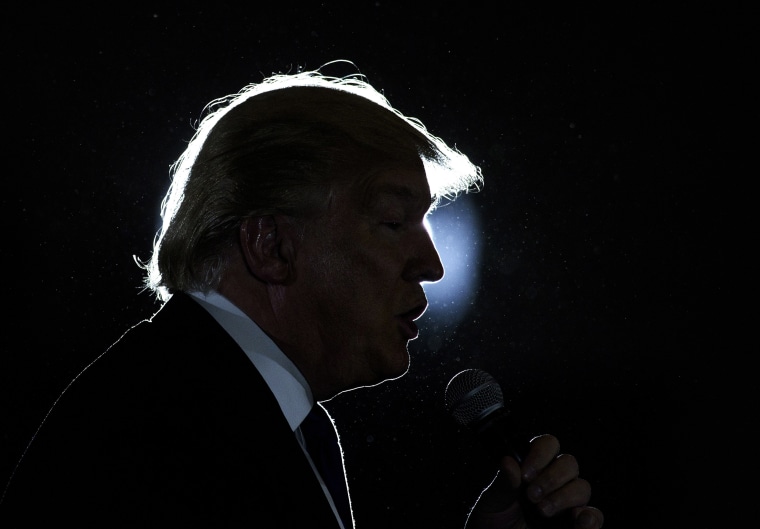One of the first hints of Donald Trump's new financial focus came two weeks ago, when he spoke at the Conservative Political Action Conference (CPAC). The former president told activists that "there's only one way ... to elect America-First Republican conservatives, and in turn, make America great again."
The one way? Give money to Trump's political action committee -- not his political party.
Late last week, he upped the ante, sending cease-and-desist letters to the Republican National Committee, the National Republican Congressional Committee, and the National Republican Senate Committee, insisting that they stop using his name and likeness in their fundraising appeals. Evidently, the former president feared his party's appeals might interfere with his own solicitations.
On Monday, Trump's message grew even more direct: while deriding Republican campaign committees that occasionally support incumbents he disapproves of, the former president told conservative contributors to instead "send your donation to Save America PAC."
Late yesterday, he did it again, issuing a similar statement that clarified his wishes. It read in part:
"I fully support the Republican Party and important GOP Committees, but I do not support RINOs and fools, and it is not their right to use my likeness or image to raise funds. So much money is being raised and completely wasted by people that do not have the GOP's best interests in mind. If you donate to our Save America PAC at DonaldJTrump.com, you are helping the America First movement and doing it right. We will WIN, and we will WIN BIG!"
In other words, he "fully" supports his party, but his party supports losers. Ergo, the obvious solution is for his many followers to stop sending money to the Republican Party and start sending money to his political action committee.
To hear Trump tell it, this is the only way to ensure that Republicans -- which is to say, Trumpified Republicans -- "win big." Clearly, he has credibility on the subject. It's not as if he were the only modern president to lose the popular vote twice while his party lost control of Congress, right?
Oh wait.
All joking aside, there's been ample discussion in recent years about Donald Trump's efforts to control Republican politics, but the focus has been on the party's candidates, message, and vision. This new chapter makes clear that the former president also wants control over Republican finances, too.
A Politico report added, "By urging givers to route his money through his political vehicle, the former president is attempting to monopolize the Republican Party donor base — and bend the GOP to his will by depriving it of cash."
There was some chatter several weeks ago about Trump weighing the creation of a new political party. But he clearly doesn't need one: the more the former president can control Republican money, the more the institution will effectively be under his thumb.
As for prospective donors who like the idea of Trump controlling party finances through his Save American leadership PAC, the New York Times reminds us today of how such entities function:
Mr. Trump's actions could give him a stream of money at a time when his private company is struggling under the scrutiny of investigations, with some discussions of whether properties need to be sold. His business is now politics, and political action committees have few restrictions on how they operate and use their money, according to campaign finance experts. The former president could, in theory, pay himself and his family members salaries from the money raised there.
How Trump and his team could spend the money once it's in their coffers is largely unrestricted.
Given the former president's track record of brazen corruption, Republicans have reason to be concerned.

